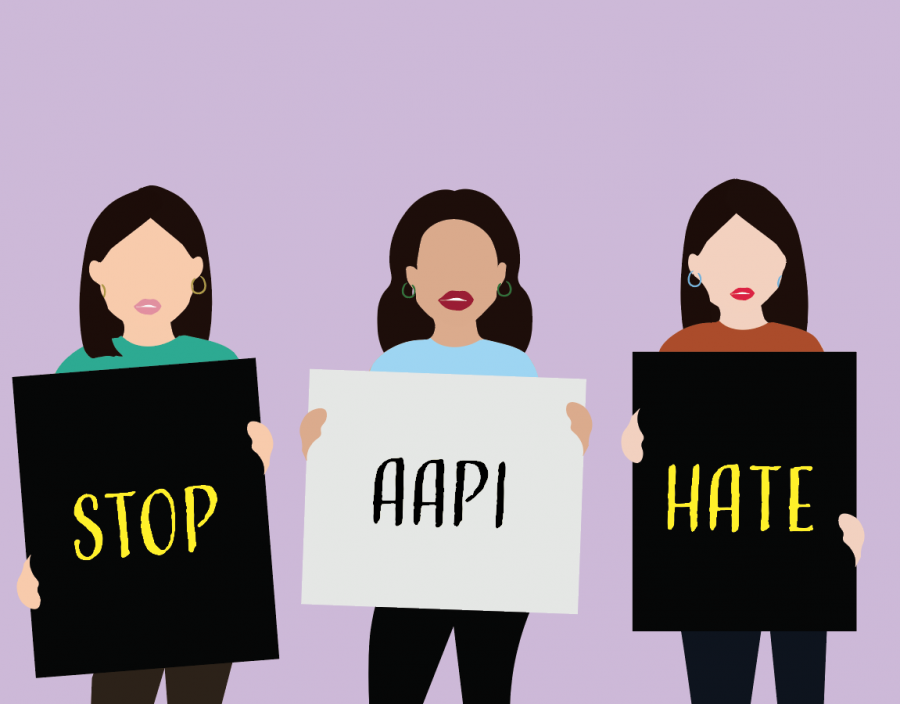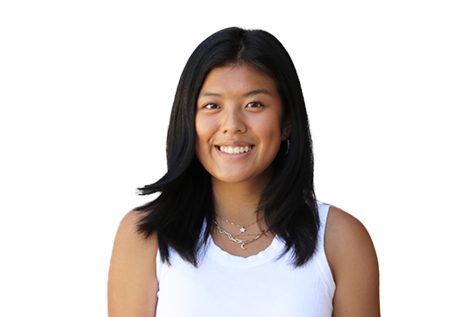As a young girl scrolls through her news feed, she stumbles across an article regarding the surging number of hate crimes towards Asians due to the COVID-19 outbreak. As she continues reading, she realizes that the racism towards Asians is no longer just verbal but has worsened to states of physical attacks. She sits there, numb, as disappointment and sadness filled her.
Bethany Yeung, a sophomore at Aragon High School, experiences this feeling as she learns of these xenophobic crimes occurring so close to her.
“I know there was one [incident] that was down the street from my house where an elderly woman was almost caught on fire. It really broke my heart, and it just really made me think like what if that was my grandma or someone I knew personally,” Yeung said.
This incident that occurred back in March of 2020 was one of the pivotal moments that sparked Yeung’s passion for seeking a solution to end racial injustices. Like many, her activism started with reposting informative posts on her Instagram stories.
Eventually, through her school’s college and career center, she was informed about an opportunity that could elevate her activism to the next level. A month later, she started her internship with Stop AAPI Hate’s youth campaign.
Stop AAPI Hate is an organization that advocates against racial injustices, specifically in the Asian American and Pacific Islander community. The organization consists of the partnerships between the Asian Pacific Planning and Policy Council (A3PCON), Chinese for Affirmative Action (CAA), and the Asian American Studies Department of San Francisco State University.
Russell Jeung, co-founder of Stop AAPI Hate and an Asian American Studies professor at San Francisco State University, predicted at the beginning of the outbreak that hate crimes would escalate as a result of the COVID-19 virus outbreak based on prior history and events.
“In January, we knew that because of Asian American history that Asians would be scapegoated for the disease and then be met with interpersonal violence and racist policies. That’s a trend in the past, and we saw it most recently in SARS,” Jeung said.
Cynthia Choi, the Co-Executive Director for the CAA and co-founder of Stop AAPI Hate, noted that Jeung’s point of prejudice and negative generalizations against Asian Americans doesn’t only occur during outbreaks of a virus.
“Asians have become a very easy target. We don’t have to look too far to look at post-9/11 when we witnessed rounding up people of Arab, Middle Eastern, and Muslim descents, suggesting that they were all potential terrorist threats,” Choi said.
With this in mind, the organizations started planning Stop AAPI Hate. By launching a website in March of 2020, they initiated a reporting center, hoping the documentation would raise awareness for the racial attacks.
“We wanted to document racism in order to hold the government accountable to stop it. Unless we documented it well, people wouldn’t believe that Asian Americans are experiencing these trends. People would think, ‘Oh, it’s just a bunch of individual isolated cases of prejudice.’ Documenting it helps show that it’s a pervasive institutionalized form of racism,” Jeung said.
Their predictions were right.
Within three months of their launch, over 1,800 incidents of racial attacks against the Asian American and Pacific Islander community were reported on their website.
One of their primary projects in the youth campaign revolved around recording such racial attacks. One of the first projects that Yeung participated in entailed interviewing Asian American and Pacific Islander youth regarding the different types of racism they have endured to emphasize the normalcy of racism towards the Asian American Pacific Islander community.
“One of our first main projects was our stories campaign. All of the interns interviewed almost 1000 different people, mostly youths from elementary school all the way up to college- level, about the microaggressions they’ve experienced or the way they felt growing up and whatever they may have experienced. Often it was a lot of slurs, name-calling, and stereotyping,” Yeung said.
The organization also emphasizes the importance of supporting all people of color’s activism. Choi believes that racism is formed through the division of minorities. If minorities are capable of supporting each other, it will be a progressive step towards minimizing discrimination.
“One of the things about racism in white supremacy is that it’s important to divide our communities. That’s been a ploy from the very beginning for Asian Americans to somehow subscribe to this idea that we work harder than any other group and that other groups must be intellectually and culturally inferior. If you look at the divide around Affirmative Action, for example, that argument has been used to try to divide communities of color,” Choi said.
Due to this, the support from Asian Americans and Pacific Islanders, and other minority groups, during the Black Lives Matter movement was pivotal as it conveyed the unity between the various racial minority groups.
“If you think about the Black Lives Matter movement, the simple fact that all Black people want is for their lives to matter, to be treated equally under the law, and to recognize the history of discrimination that they’ve encountered. We want to support that because any discrimination against any group hurts all of us,” Choi said.
Despite the hardships that people of color face, Choi and Jeung both believe that there is hope to minimize racism in our country. Implementing studies revolving around racial inequalities into our education systems would be a fundamental start.
“This is going to take all of us; it’s going to start in our education system. Schools play a very important role, and part of what’s happening is that we have an education system that does a fairly poor job in educating students about the history of racism in this country,” Choi said.























